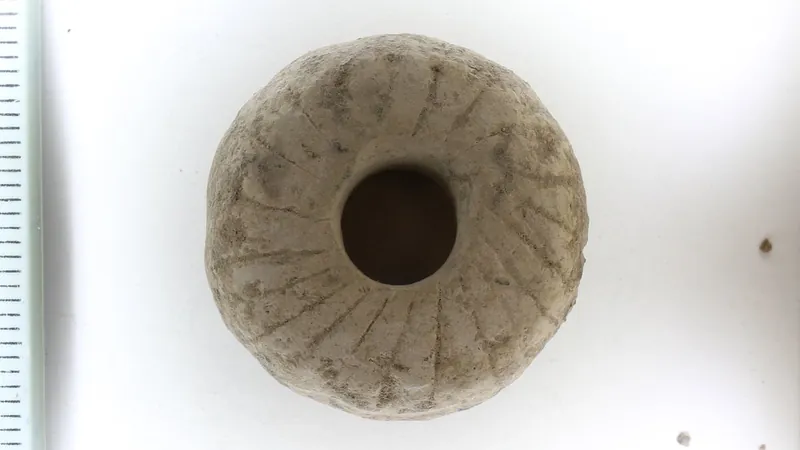
The Wheel's Origins: New Research Rewrites History 12,000 Years Ago!
2024-11-13
Author: Wei
The Wheel's Origins: New Research Rewrites History 12,000 Years Ago!
The invention of the wheel is often hailed as one of the most monumental advancements in human civilization. For centuries, its origin has been a subject of fascination and debate among historians and archaeologists alike. However, a groundbreaking discovery may have just rewritten the timeline of this pivotal innovation, pushing it back by an astonishing 6,000 years.
Previously, the earliest known wheels were thought to have emerged around 4000 BC in Mesopotamia, in what is now modern-day Iraq, primarily utilized for pottery. It wasn't until about 3,500 BC, during the Bronze Age, that evidence of wheeled vehicles appeared in historical records.
Recent excavations in Israel, however, have unveiled a remarkable collection of perforated limestone pebbles at the Nahal-Ein Gev II archaeological site, dating back approximately 12,000 years. This find suggests a much earlier use of rotational tools resembling wheels.
Experts believe these ancient stones served as spindle whorls—essential tools in textile production. The circular design of the pebbles, featuring a central hole, indicates their connection to a rotating mechanism. Researchers from the Hebrew University of Jerusalem constructed replicas of these whorls and successfully used them to spin flax, confirming their intended function.
Professor Leore Grosman, a leading researcher on the project, emphasized the significance of this discovery: "These perforated stones represent the earliest forms of wheels—as round objects designed for rotation—long before they became associated with transportation." This innovative use of rotation heralded the development of various tools that followed, such as the potter's wheel and the cart wheel.
The researchers highlighted the importance of merging ancient craftsmanship with modern technology. Their study, published in the journal *PLOS ONE*, states, "The wheel and axle revolutionized human technological history by transforming linear to rotary motion, allowing for the movement of parts within devices."
While previous theories linked the wheel primarily to the onset of wheeled vehicles during the Bronze Age, this new evidence suggests a complex history involving tools that contributed to spinning and fiber production long before the advent of transport wheels.
As this fascinating research unfolds, it invites us to reconsider not just the wheel’s origin but also the ingenuity of our prehistoric ancestors and their impact on technological evolution. Could this discovery reshape our understanding of early human innovation? Only time—and further research—will tell!



 Brasil (PT)
Brasil (PT)
 Canada (EN)
Canada (EN)
 Chile (ES)
Chile (ES)
 España (ES)
España (ES)
 France (FR)
France (FR)
 Hong Kong (EN)
Hong Kong (EN)
 Italia (IT)
Italia (IT)
 日本 (JA)
日本 (JA)
 Magyarország (HU)
Magyarország (HU)
 Norge (NO)
Norge (NO)
 Polska (PL)
Polska (PL)
 Schweiz (DE)
Schweiz (DE)
 Singapore (EN)
Singapore (EN)
 Sverige (SV)
Sverige (SV)
 Suomi (FI)
Suomi (FI)
 Türkiye (TR)
Türkiye (TR)